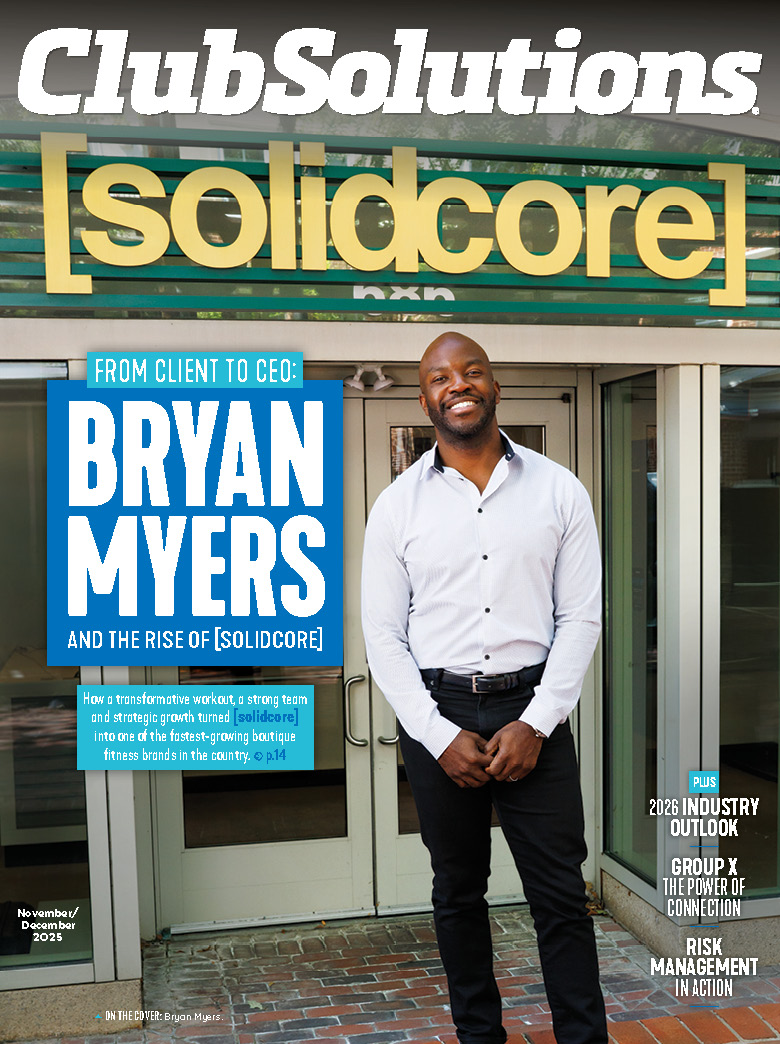The dictionary defines an entrepreneur as someone who “organizes, operates and assumes the risk for a business venture.” Presumably that person would want to create a highly organized venture, would want to minimize their assumed risk. Thus, it is no great surprise that entrepreneurs look to the franchise business model to reign in success.
The term “franchise” means a lot of different things to a lot of different people. Some people see franchised businesses as entrepreneurial masterpieces, while others see them as homogenized operations, devoid of creativity. But, whatever your association, a franchise is a compelling model for doing business.
Every small business has, at some point, been impacted by franchises. They touch our lives, our businesses and our customers’ lives. In the fitness world, you can’t ignore giants like Gold’s Gym and Bally’s Total Fitness. These goliaths, with over 1,000 locations between them, are bound to make things interesting for any independent club owner. And, the statistics are even more frightening. Per a U.S. Department of Commerce study, 90 percent of franchised business operations are still in business after 10 years, whereas over 80 percent of independent businesses fail in the same time frame.
So, what am I getting at? Am I telling you to run out and sign a franchise agreement? No. What I’m telling you is that the franchise business model can work for you, rather than against you. There is a fundamental intelligence to the franchise business model that can be applied to any business, whether you have one location or 5,000.
It’s time to get entrepreneurial about your business. It’s time to start looking at your business as an investment rather than a place to go to work every day. It’s time to walk in stride with the giants, like Ray Kroc of McDonalds and Sam Walton of Walmart. And, here’s how you do it. You start by deciding that you’re going to view your business as a franchise prototype, as a model that, if documented, could serve as the organizational template for 5,000 businesses exactly like it. This shift in thinking will enable you to think big, to think strategically about what kind of systems and documentation you’d need to have in place to be able to succesfully replicate your business 5,000 times.
When you buy a new appliance, it comes with a manual that documents exactly how you need to operate it to achieve the intended result. Push this button to do this. Push that button to do that. Every sport has a rule book. Every course has a text book or a syllabus. Every successful business has an operations manual.
The successful franchises of the world provide their managers or franchisees with a detailed operations manual that documents things such as: store layout, product pricing, how to handle customer complaints, how to take an order, signage, employee dress code, how to teach a step aerobics class, etc.
Doesn’t it make sense that every business should have a guide, a manual, a rule book? Wouldn’t you love to be able to empower your employees and managers to take more responsibility for the business’s operations by providing them with the necessary tools to get the job done? Here are four things to consider when gearing up to create your franchise prototype. They are the governing rules in the franchise game, and will provide you with an entrepreneurial context in which to look at your business as a franchise prototype.
Your business must:
• Provide consistent value to your customers, employees, suppliers and lenders, and exceed their expectations.
• Be positioned to be operated by people with the lowest possible level of skill because everything in the business will be systematized.
• Be the exemplar of order, and will provide a predictable experience for your customers, employees, suppliers and lenders.
• Have all the work that happens documented in an operations manual, to ensure that the systems are followed1.
To an entrepreneur, their business is their most important product…not their product or service. Your unique way of doing business is what sets you a part from your competition in the hearts and minds of your customers. And, your franchise prototype, your operations manual, is your means to define and ensure the consistency of this unique way of doing business.
(Footnotes)
(1) Gerber, Michael E., The E-Myth Revisited (HarperBusiness, New York, 2001) p. 98
Hillary Gerber is Senior Editor at E-Myth Worldwide. She can be contacted at 800.221.0266, or by email at hgerber@e-myth.com.








